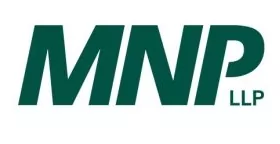- with readers working within the Banking & Credit industries
It's a classic scenario: Two partners start a business in their basement, convinced they've formed the ultimate team. As it turns out, they're right. Very quickly, the business grows, staff is hired and moves into spacious downtown offices. Following their lawyer's judicious counsel, the partners draw up a shareholders' agreement. And then, for one reason or another, one of the associates decides to leave the business to "pursue new challenges". This departure triggers the buy-sell provision of the shareholders' agreement. This is where the exiting party realizes that the value of the shares had not been clearly established in the agreement. Litigation time!
Because it's a way to share risk, going into business with one or more associates is a formula that appeals to no fewer than 37.8% of young up-and-coming Québec entrepreneurs, according to the Fondation de l'entrepreneurship's 2014 Québec Business Index. That's almost as many as those who want to go into business alone.
Yet Catherine Tremblay, a Partner in Business Valuations and Litigation Support with accounting firm MNP, warns, "New business partnerships are like weddings. People rarely plan for divorce!"
But partnerships can go south. Even if the separation is an amicable one, things can quickly sour when, for example, the terms of the buy-sell provision of the share capital are poorly defined.
This is the sort of situation that a shareholders' agreement – a crucial document for partners going into business together – can prevent. But how do you draw one up so that it's dispute-proof?
Every business is unique
Surprisingly, many business people do not see the point of having a shareholders' agreement in place when they first set up shop. "Let's be honest," says Catherine Tremblay, "this is a legal document no one feels like writing. When you're starting out, with no real value to protect, its use is not immediately apparent. However, when the business starts to take off, the partners realize that they need to protect themselves."
When writing up a shareholders' agreement, Ms. Tremblay encourages partners to be wary of templates and "standard" forms that can be found just about anywhere. "Every business has its own particular characteristics," she explains. "You have to take into account the various situations that might arise and really think through the formula to be used to establish share value."
For example, a common valuation formula consists of using a multiple of four times the earnings before interest, tax, depreciation and amortization (EBITDA). Yet this multiple may not apply to some businesses – for example technology companies that are not yet generating huge profits, but have developed a technology that is unique in the world.
Fair market value
Some shareholders' agreements include a shareholder's option to sell shares at their book value rather than fair market value. Careful! In some cases, there's a world of difference between these two concepts.
Book value is the net value of the business as indicated on the balance sheet. It does not take into account intangible assets or capital gains on certain properties. Thus if the company acquired a building 10 years ago, the rise in value of this real estate will not be included in the book value.
Contrary to fair market value, book value also ignores the value of patents, long-term contracts or goodwill (patronage of a retail business, for example).
"This is why we generally recommend that the share value be established according to its fair market value as determined by an independent expert."
Business valuation: a good habit to get into
"This brings us to a commonly misunderstood concept, that of business valuation. We recommend that people get a company appraisal when signing the shareholders' agreement to test the valuation formula included in the buy-sell provision, and it should be reappraised periodically."
While not necessarily an annual exercise, the "periodical" valuation could be done, for example, when the company reaches certain stages of development, such as the arrival of a new partner, the first million dollar sales mark, etc.
In addition to being a powerful firewall against potential disputes, a professional business valuation is a tool shareholders can use to measure their progress thus far.
Departure without dispute
A clear shareholders' agreement, an up-to-date appraisal, a share valuation consistent with the nature of the business – these details will ensure that a partner who wishes to "take on new challenges" can do so without going to court.
Original article (in French) can be read at lesaffaires.com.
The content of this article is intended to provide a general guide to the subject matter. Specialist advice should be sought about your specific circumstances.
[View Source]

